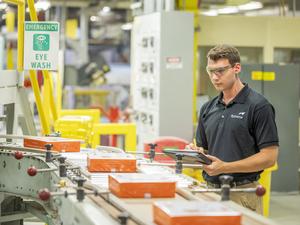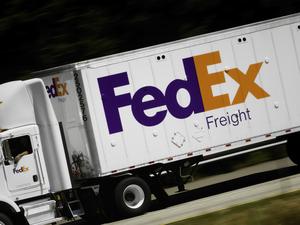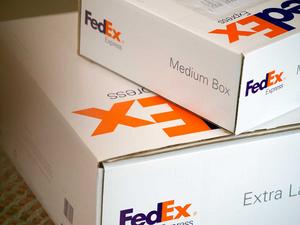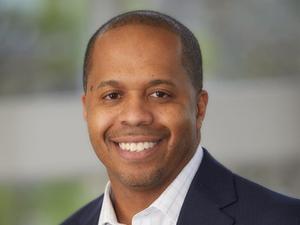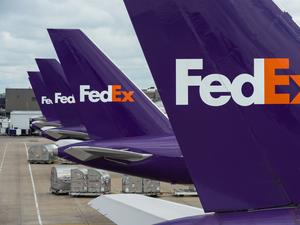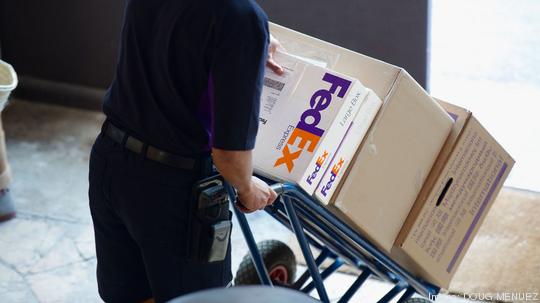
As part of its quest to become carbon neutral by 2040, FedEx wants its entire pickup and delivery (PUD) fleet to be comprised of zero-emission electric vehicles (EVs).
But not all of FedEx’s vehicles are in its PUD fleet. It also has a fleet of heavyweight, long-distance trucks — and those are harder to electrify. These trucks require a longer mileage range and need more time to recharge or refuel. Given the distances they travel, they often must refuel in multiple countries.
So, overseas, the European division of FedEx Express — the company’s largest subsidiary — is trying out a different type of fuel.
At the start of November, a portion of its truck drivers in the Netherlands started using renewable diesel, a more sustainable alternative to fossil-fuel diesel. This synthetically made type of fuel has the potential to lower carbon emissions by 80%–90% per liter, and it’s meant to serve as an interim solution for the trucks as FedEx — and the world — look for a more permanent one.
“It means that while technological solutions are still being developed to help the industry transition away from using fossil fuels altogether, we can already make decisions to influence and reduce our scope one carbon emissions in our linehaul truck network — those generated by our owned vehicles,” Vinay D’Souza, FedEx Express Europe’s SVP of planning and engineering, said in a press release.
One part of a large effort
While lowering the carbon footprint of the linehaul trucking fleet is more difficult than lowering the carbon footprint of the PUD fleet, it’s not the company’s biggest challenge in its effort to reach carbon neutrality.
FedEx is most known for its airplanes, and these aren’t about to be electrified. Founder and executive chairman Fred Smith has called scaling up sustainable aircraft fuels the company’s “most intractable problem” in its environmental push.
So, FedEx has contributed $100 million to Yale University (Smith’s alma mater), money used to establish the Yale Center for Natural Carbon Capture. The hope is that scientific research conducted there will find new methods of carbon sequestration at scale and help offset greenhouse gas emissions equivalent to current airline emissions.
This is also wrapped up in FedEx’s commitment to become carbon neutral by 2040, a $2 billion effort that’s driven not just by a desire to help the planet, but a desire to appease customers.
Because, as Smith told MBJ last month, the bulk of the customer base has placed an emphasis on sustainability.
“The vast majority of our customers list sustainability and responsible corporate citizenship as among their most important attributes for a company they want to do business with,” Smith said. “So, it’s very important that we occupy a position of responsible corporate stewardship in terms of environmental sustainability, because our customers want us to do it.”
'Non-negotiable'
His assertion is backed up by new research commissioned by FedEx Express, which shows consumers’ growing interest in sustainability across the globe.
According to the research — which was detailed in a separate release — eight out of 10 consumers in the Asia Pacific, Middle East, and Africa regions (AMEA) expect the companies they buy from to have sustainable business models. And seven out of 10 prefer to buy from companies that have an effective environmental, social, and corporate governance (ESG) plan in place.
But at the same time, the research shows that only 29% of small and medium-sized enterprises (SMEs) in AMEA have ESG plans. Though many acknowledge that consumers expect them to run sustainable businesses, some either fear the associated costs or aren’t convinced an investment in ESG will produce a return.
Still, FedEx asserts that a more sustainable model is in their best interest.
“Sustainability is no longer an optional extra for SMEs interested in expanding their e-commerce businesses,” Kawal Preet, AMEA president at FedEx Express, said in the release. “Consumers increasingly see it as an essential and non-negotiable part of their decision-making process."
